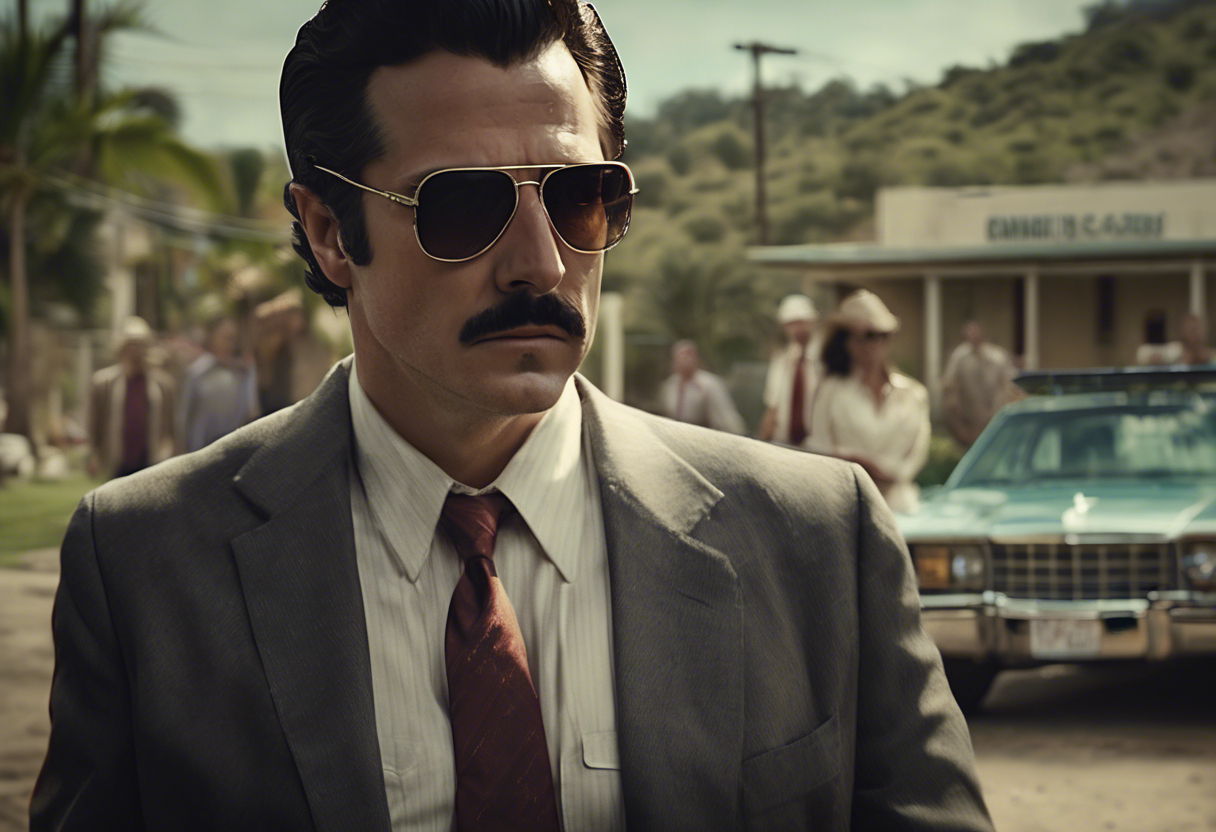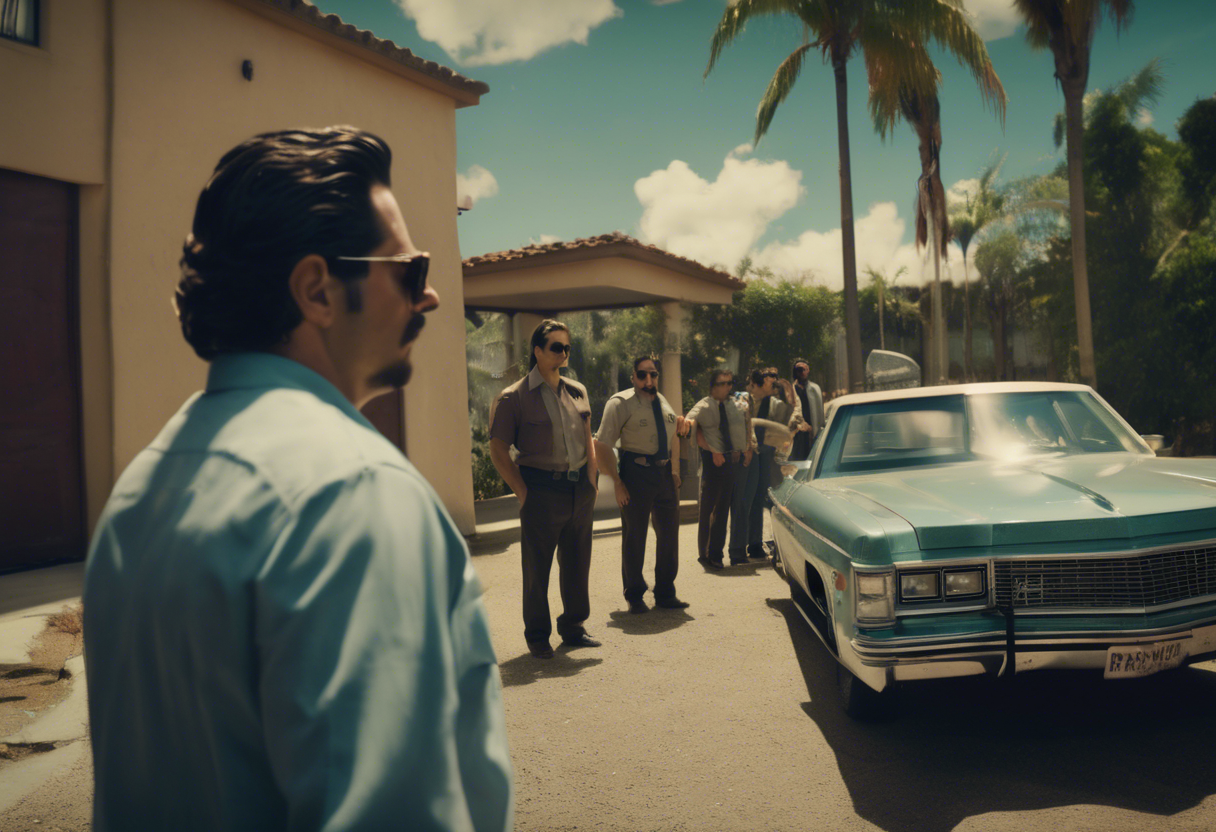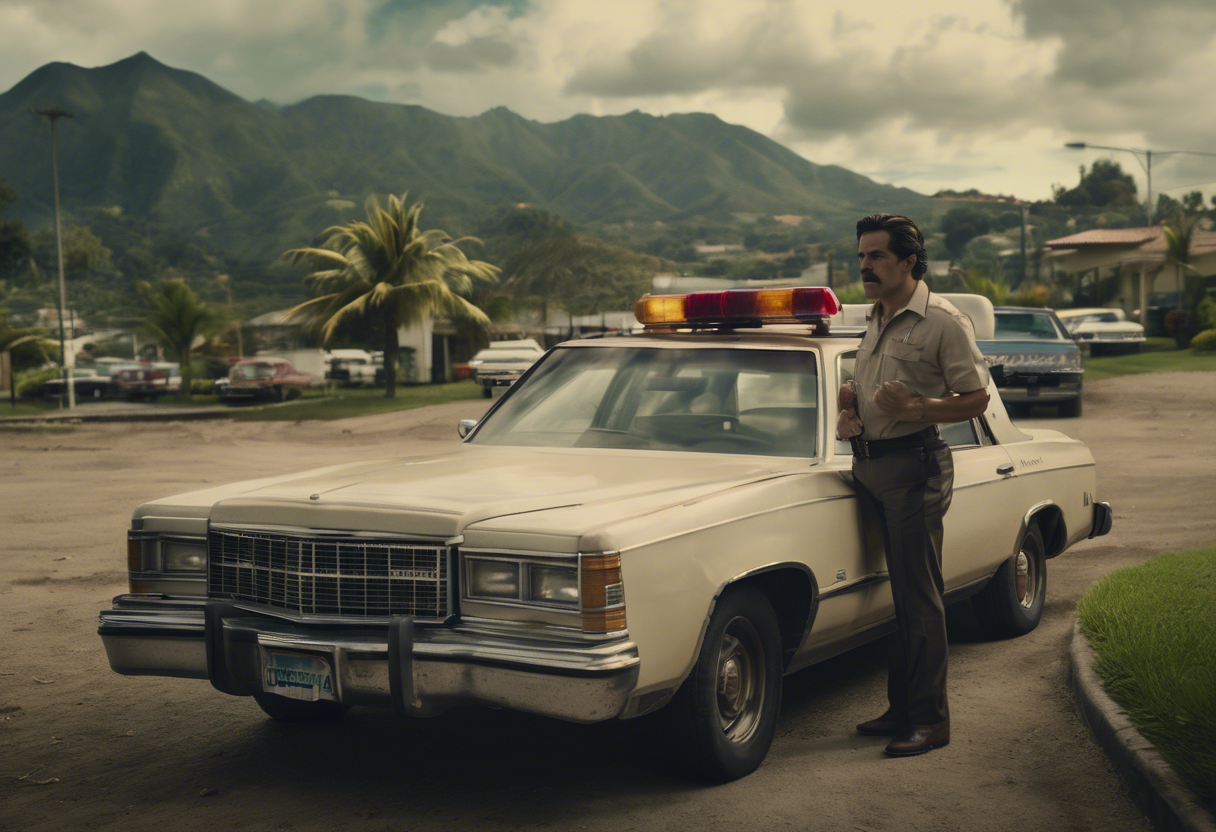Contents
Narcos Season 3: Episode 10 – Going Back to Cali
Introduction
"Narcos" is a critically acclaimed Netflix series that delves into the world of international drug trafficking, particularly focusing on the rise and fall of the Medellín and Cali cartels in Colombia. Created by Chris Brancato, Carlo Bernard, and Doug Miro, the series is known for its meticulous research, gripping storytelling, and strong performances. Season 3, which premiered in 2017, shifts its focus from the Medellín cartel to the Cali cartel, exploring the intricate web of drug trafficking and the law enforcement efforts to dismantle it.
"Going Back to Cali," the tenth episode of Season 3, is directed by Andrés Baiz and written by the show’s creators. This episode is significant as it marks a pivotal point in the season, where the characters face critical decisions and confrontations that shape the narrative’s trajectory. The episode’s production is notable for its detailed portrayal of the cartel’s operations and the DEA’s relentless pursuit, showcasing the high stakes and intense drama characteristic of the series.
Plot Summary
In "Going Back to Cali," the narrative is driven by the intense rivalry between DEA agents and the Cali cartel. The episode opens with Javier Peña, played by Pedro Pascal, and David Rodriguez, played by Arturo Castro, in a race against each other to locate Carlos Pallomari, the cartel’s accountant who has become a crucial informant for the DEA. This race is not just about capturing Pallomari but also about the personal and professional stakes for both characters.
As the episode unfolds, Peña finds himself at a crossroads in his career. The pressure from his superiors and the moral ambiguities of his work have taken a toll on him. He is forced to make a serious decision about his future, one that could impact not only his career but also his relationships with his colleagues and the people he has come to care about. This internal conflict is juxtaposed with the external chaos as the DEA closes in on the Cali cartel.
Meanwhile, the Cali cartel, led by the Rodríguez Orejuela brothers, Gilberto and Miguel, played by Damián Alcázar and Francisco Denis respectively, is facing its own set of challenges. The brothers are under immense pressure to maintain their empire as the DEA’s efforts begin to bear fruit. Pacho Herrera, played by Alberto Ammann, a key figure in the cartel, is dealing with his own demons and the increasing distrust among the cartel members.
The episode also delves into the personal lives of the characters, particularly Peña and his relationship with his colleagues. The tension between Peña and David Rodriguez is palpable as they navigate their differences in approach and ideology. This tension is heightened by the presence of other characters, such as Chris Feistl, played by Michael Stahl-David, who represents a new generation of DEA agents with different methods and motivations.
The setting of the episode is predominantly Colombia, with scenes shot in various locations that highlight the country’s diverse landscapes and urban environments. The cinematography is striking, capturing the gritty realism of the drug war while also showcasing the beauty and complexity of Colombian culture.
As the episode progresses, the stakes become higher. Pallomari’s location becomes a focal point, with both the DEA and the cartel desperate to get to him first. The cat-and-mouse game between these two forces is intense and suspenseful, leading to a climactic confrontation that changes the dynamics of the season.
The character development in this episode is profound. Peña’s struggle with his career and personal life is deeply explored, making him a more nuanced and relatable character. The Rodríguez Orejuela brothers are portrayed in a way that humanizes them, showing their vulnerabilities and the pressures they face. This humanization adds depth to the narrative, making it more than just a story about good vs. evil.
The central conflict of the episode revolves around the pursuit of Pallomari and the implications of his capture. This pursuit is not just about the DEA’s mission but also about the personal vendettas and the moral dilemmas that come with it. The episode raises questions about the cost of the drug war, the morality of the actions taken by both sides, and the impact on the individuals involved.
In conclusion, "Going Back to Cali" is a masterfully crafted episode that combines intense action, deep character development, and a gripping narrative. It sets the stage for the final episodes of the season, where the fate of the Cali cartel and the DEA agents will be decided.
Themes and Symbolism
"Going Back to Cali" explores several themes that are central to the "Narcos" series. One of the primary themes is the moral ambiguity of the drug war. The episode highlights the gray areas between right and wrong, showing how both the DEA agents and the cartel members are driven by complex motivations that go beyond simple good vs. evil.
Another significant theme is the personal cost of involvement in the drug war. Peña’s internal conflict and the personal struggles of other characters illustrate the toll that this war takes on individuals. This theme is symbolized through the characters’ relationships and the choices they make, which often have far-reaching consequences.
The episode also delves into the theme of power and control. The Cali cartel’s struggle to maintain its empire and the DEA’s efforts to dismantle it serve as a backdrop to explore the dynamics of power. This is symbolized through the characters’ actions and the consequences of those actions, showing how power can both corrupt and redeem.
The symbolism of the title "Going Back to Cali" is also noteworthy. It represents a return to the heart of the cartel’s operations and a confrontation with the past. For Peña, it symbolizes a return to the roots of his mission and a re-evaluation of his goals.
Cultural Impact
"Going Back to Cali" was well-received by audiences and had a significant impact on pop culture. The episode’s intense action sequences and dramatic plot twists made it a talking point among fans and critics alike. The show’s portrayal of the drug war and its characters has been referenced in various forms of media, from news articles to other TV shows and films.
The episode’s influence can also be seen in how it contributed to the broader discussion about the drug war and its implications. It sparked conversations about the morality and effectiveness of the war on drugs, making it more than just a piece of entertainment.
Critical Reception
Critics praised "Going Back to Cali" for its gripping narrative, strong performances, and the way it handled complex themes. The episode received high ratings on platforms like Rotten Tomatoes and IMDb, with many reviewers highlighting its intense action and emotional depth[2][3].
Viewers also responded positively, appreciating the episode’s ability to balance action and drama. The episode’s climax was particularly praised for its suspense and emotional impact.
However, some critics noted that the episode’s pacing could be slow at times and that some plot points felt a bit predictable. Despite these minor criticisms, the episode was generally well-received and is considered one of the highlights of Season 3.
Legacy
"Going Back to Cali" has left a lasting impact on the television landscape. It is remembered for its intense drama, strong performances, and the way it explored complex themes. The episode’s influence can be seen in future TV shows and films that deal with similar subjects, such as the drug war and law enforcement.
The episode’s portrayal of characters like Peña and the Rodríguez Orejuela brothers has set a high standard for character development in crime dramas. It has also contributed to the broader cultural conversation about the drug war, making it a significant piece of television history.
In conclusion, "Going Back to Cali" is a pivotal episode in the "Narcos" series, known for its gripping narrative, strong performances, and exploration of complex themes. Its impact on pop culture and its influence on future media make it a memorable and significant episode in television history.







